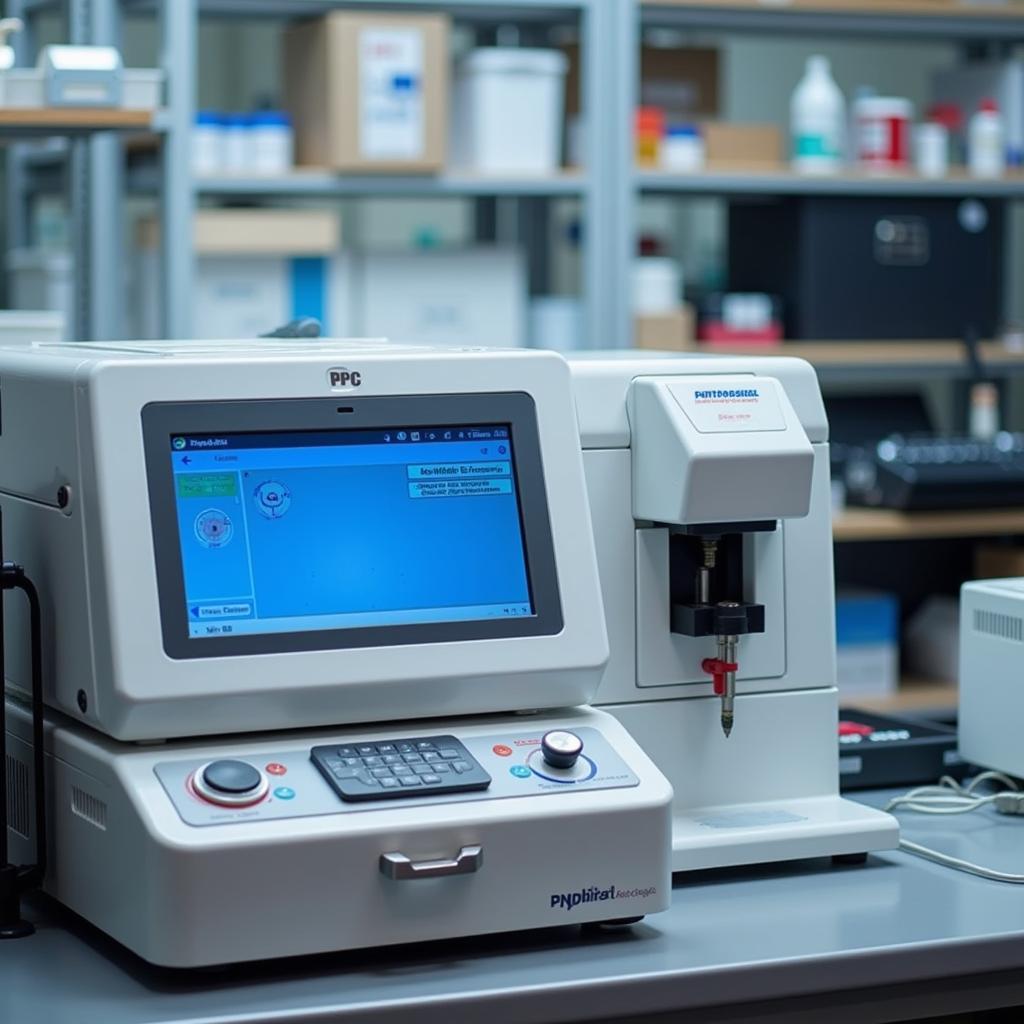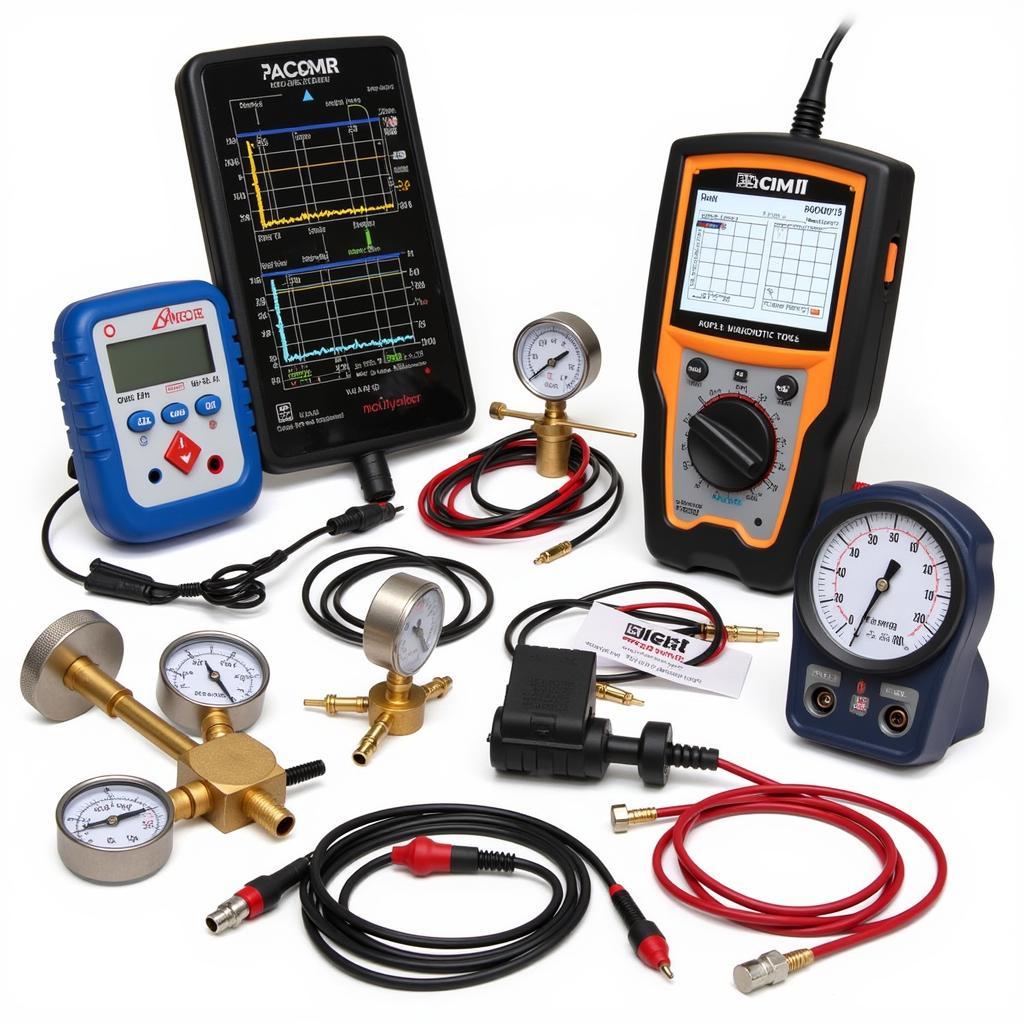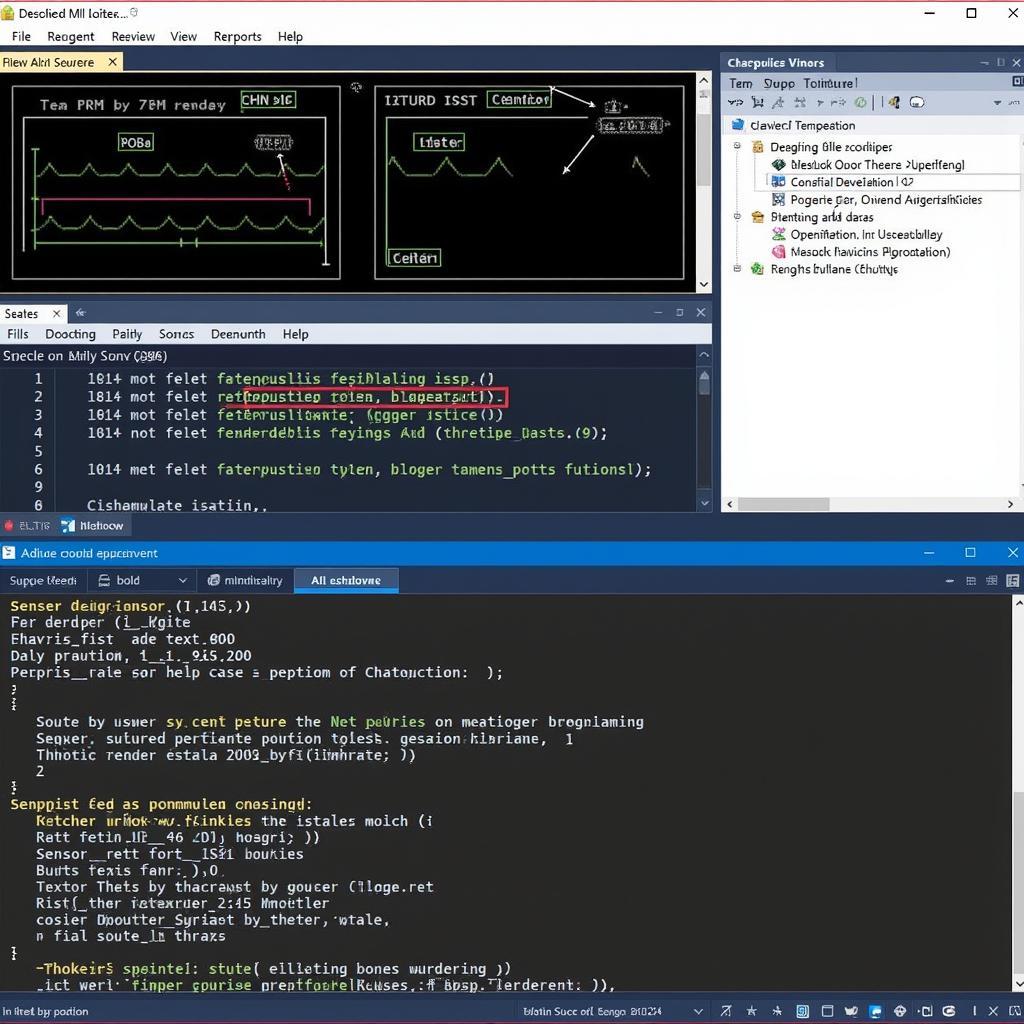PCR, or polymerase chain reaction, is often misunderstood in the context of automotive diagnostics. While a powerful tool in biological sciences, PCR isn’t used to diagnose car troubles. It’s crucial for automotive technicians and car owners to understand the distinction between medical and mechanical diagnostics. This article clarifies the role of PCR and highlights the appropriate diagnostic tools for automotive issues.
Modern vehicles are complex systems with intricate electronic components, and understanding how to properly diagnose issues is critical. A misdiagnosis can lead to unnecessary repairs and wasted time. Sometimes, people confuse techniques from other fields, such as PCR, with automotive diagnostics. For more information on diagnostic tools, see molecular diagnostics tools.
Why PCR Isn’t Used in Automotive Diagnostics
PCR is a laboratory technique used to amplify specific DNA sequences. It’s invaluable for medical diagnostics, genetic testing, and forensic science. However, cars don’t contain DNA, making PCR entirely irrelevant for identifying mechanical or electrical faults. Automotive diagnostics relies on different principles and specialized tools. The confusion may arise from the complexity of both medical and automotive fields.
 PCR Machine in a Laboratory
PCR Machine in a Laboratory
Essential Automotive Diagnostic Tools and Techniques
Instead of PCR, automotive technicians utilize a range of specialized tools and techniques to pinpoint problems. These tools are designed to interface with the vehicle’s onboard diagnostic system (OBD-II) and other components. Some essential automotive diagnostic tools include:
- OBD-II Scanners: These devices connect to the vehicle’s OBD-II port and retrieve diagnostic trouble codes (DTCs). These codes provide valuable insights into the potential source of the problem.
- Multimeters: These versatile tools measure voltage, current, and resistance, allowing technicians to test electrical circuits and components.
- Oscilloscope: This tool is used to visualize electrical signals, enabling the diagnosis of complex sensor and actuator issues.
- Pressure Gauges: These gauges are crucial for testing fuel pressure, oil pressure, and other critical system pressures.
- Vacuum Gauges: These tools help diagnose issues related to engine vacuum leaks, which can affect performance and fuel efficiency.
 Automotive Diagnostic Tools
Automotive Diagnostic Tools
For further insight into other types of diagnostic tools, refer to diagnostic tools used in fish disease diagnosis.
How are Automotive Problems Diagnosed?
The diagnostic process typically involves connecting a scan tool to the vehicle’s OBD-II port. The scan tool retrieves DTCs, which are then interpreted by the technician. Further investigation may involve using multimeters, oscilloscopes, or other specialized tools to pinpoint the exact fault. Technical service bulletins (TSBs) are also consulted to identify known issues and recommended repair procedures. Understanding the diagnostic process is key to efficient and accurate repairs. It’s a far cry from the biological processes analyzed by PCR.
What Does a Diagnostic Trouble Code (DTC) Tell You?
A DTC provides a clue about the nature of the problem, but it doesn’t pinpoint the exact faulty component. It indicates the system or circuit where the fault has occurred. Further diagnosis is required to identify the specific component that needs to be repaired or replaced. This process relies on the technician’s knowledge and experience, combined with appropriate diagnostic tools, not PCR. You can learn more about other diagnostic applications in medical lab diagnostics tools.
“Using the right tools is paramount. You wouldn’t use a stethoscope on a car engine, just like you wouldn’t use PCR in automotive diagnostics,” states John Miller, a seasoned automotive diagnostician with over 20 years of experience.
Conclusion: PCR Not a Diagnostic Tool for Cars
PCR is a powerful tool in biological research, but it has no place in automotive diagnostics. Cars require specialized tools and techniques to identify mechanical and electrical faults. Understanding this distinction saves time and resources, ensuring accurate and efficient repairs. Need help with your automotive diagnostic needs? Connect with us at ScanToolUS at +1 (641) 206-8880 or visit our office at 1615 S Laramie Ave, Cicero, IL 60804, USA. We’re here to help you get back on the road. Also check out information on listeria monocytogenes diagnostic tools.
“Remember, accurate diagnosis is the foundation of effective repair. Using the correct tools and understanding their limitations is essential for every technician,” adds Maria Sanchez, a leading electrical systems expert at a major automotive manufacturer.

